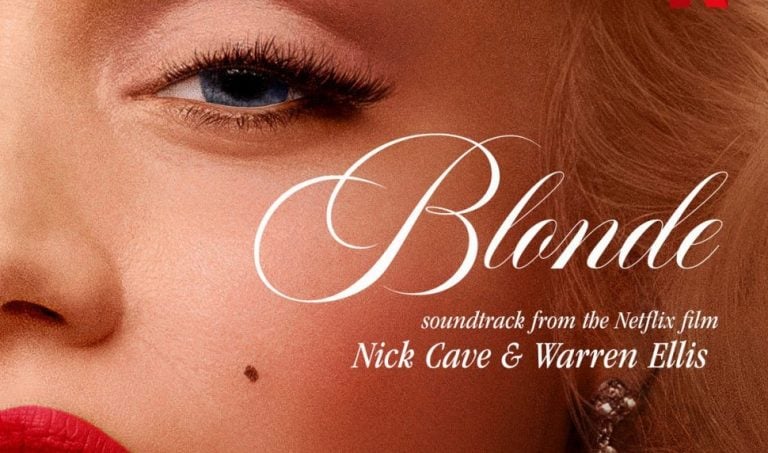Blonde, Andrew Dominik’s new Marilyn Monroe film, is proving to be rather contentious, but much less controversial is Nick Cave and Warren Ellis’ score for it.
Based on Joyce Carol Oates’ fictionalised account of the legendary star’s life, Blonde is now out on Netflix, but reviews have been polarising, while Dominik participated in an interview that social media has been tearing to shreds.
Lucky, then, that Cave and Ellis are on hand to distract with a soundtrack filled with beautiful strings and sparse piano, the tense backdrop to Monroe’s tragic life in the film.
It’s not the first time Dominik has tapped the pair to create the soundtrack for one of his films, with Cave and Ellis making a memorable score for the director’s 2006 Western masterpiece The Assassination of Jesse James by the Coward Robert Ford.
“Working with Andrew Dominik is always a challenging, but ultimately mind-blowing experience,” Cave and Ellis said. “Creating the score for this terrifying and complex reimagining of the Marilyn Monroe story was no different and, as always, it was a complete privilege to work with him. The darkest of films with a gorgeous spiritual score.”
You can listen to the full soundtrack below, and also watch the trailer for Blonde.
Love Music?
Get your daily dose of metal, rock, indie, pop, and everything else in between.
In other Cave news, the musician, who turned 65 last week, recently shared some thoughts on “the point in life.”
“Life, it seems, is full of an insistent, systemic and irrepressible beauty. But these moments of happiness are not experienced alone, rather they are almost entirely relational and are dependent on a connection to the Other – be it people, or nature, or art, or God.
“This is where meaning establishes itself, within the connectedness, nested in our shared suffering,” he said on his The Red Hand Files blog.
“I believe we are meaning-seeking creatures, and these feelings of meaning, relational and connective, are almost always located within kindness.
“Kindness is the force that draws us together, and this, Beau, is what I think I am trying to say – that despite our collective state of loss, and our potential for evil, there exists a great network of goodness, knitted together by countless everyday human kindnesses.”


































